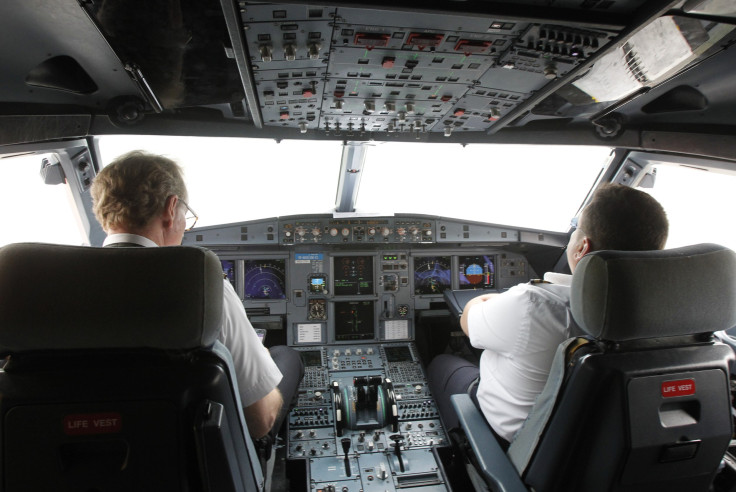
Two pilots of a British passenger plane both fell asleep while the passenger jet heading to the UK was on autopilot, according to an August incident report unveiled by UK media Thursday. One of the pilots on board the Airbus 330 flight to Britain -- the name of the airline was not disclosed -- eventually woke up and roused his colleague, but neither knew how long they had been asleep, the paper said. The flight took off on August 13 and the pilot and co-pilot took turns to take 20-minute naps, but after flying for more than an hour, they both dozed off.
The report states that the crew member reporting the incident suggested that the fatigue experienced by the pilots was due to a lack of sleep -- five hours each in two nights -- caused by long hours and "insufficient opportunity to sleep." They are not expected to face serious disciplinary action over the incident, which highlights the danger of fatigue on flights. The report was filed with the UK's Civil Aviation Agency, Britain's aviation regulator, and then obtained through a Freedom of Information request by The Sun, which on Thursday ran the front-page headline: "This is Your Captains Sleeping."
In a statement, a CAA spokesman said: "Safety is the CAA's number one priority. We take fatigue related incidents extremely seriously and will address detailed questions to individual airlines when problems emerge. The UK has an excellent safety record, but we are constantly striving to improve air safety and strongly encourage anyone in the aviation industry, especially pilots, to use our completely confidential reporting procedure to tell us of any concerns they may have."
The British Airline Pilots Association, or Balpa, said that it had repeatedly warned the CAA about the dangers of pilots feeling overly tired, and accused the regulator of being 'complacent' about the problem. "British pilots want to make every flight a safe flight and tiredness is the biggest challenge they face," Jim McAuslan, the general secretary of the British Airline Pilots Association, said in a statement. "As the regulator responsible for UK flight safety the CAA has been far too complacent about the levels of tiredness among British pilots and failing to acknowledge the scale of the underreported problem."
The problem of fatigue among pilots was revealed in a study by Balpa which showed that 56 of 500 commercial pilots admitted to being asleep while on the flight deck and, of those, nearly one in three said they had woken up to find their co-pilot also asleep. The European Parliament is set to consider proposals from the European Aviation Safety Agency to amend rules on flight-time limitations as it seeks to end years of wrangling between airlines and the flight crew over the terms. Carriers have been seeking greater flexibility in their use of crew, with pilots saying a relaxation would jeopardize safety.
"Tiredness is already a major challenge for pilots who are deeply concerned that unscientific new EU rules will cut UK standards and lead to increased levels of tiredness, which has been shown to be a major contributory factor in air accidents,'' Jim McAuslan said. ''Making every flight a safe flight is the number one priority for British pilots.''
The proposals would mean that pilots could work a maximum of 110 hours in a two-week period, more than the 95-hour limit under British regulations, and at night could be expected to fly for up to 11 hours, against a current 10-hour limit. It would also mean the pilots could be called to work at any time on their days off. Currently, restrictions are in place to help them plan their rest on days off. However, the CAA dismissed worries about the new rules.
© 2025 Latin Times. All rights reserved. Do not reproduce without permission.





